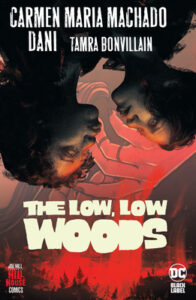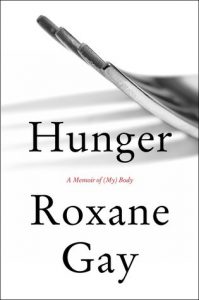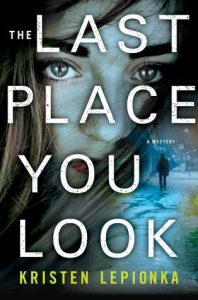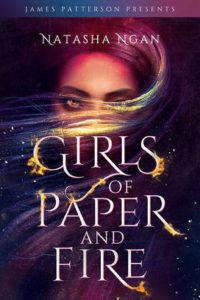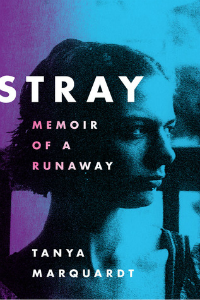I read this during Dewey’s 24 Hour Readathon in the last hour before I went to sleep, and I think this is a perfect choice for a horror graphic novel to read on an October night.
El and Vee are two queer teens living in the small town of Shudder-To-Think. As they get close to graduation, Vee can’t wait to get out, but El feels unable to escape: there are no universities she could apply to that she could afford. On the first page, they wake up together in a movie theater missing their memories of the last few hours. Vee wants to let it go, but El is determined to figure out the truth.
This isn’t the only weird thing about Shudder-To-Think, though. It is a dying ex-mining town with an underground fire that won’t go out. Flayed bodies appear and attack people. There are strange, mutated deer lurking in the woods. There’s a girl who is a sinkhole. They have a town witch that hasn’t aged since she was a child. At first, these feel like disparate atmospheric horror elements, until everything starts coming together.
I loved the atmosphere of this creepy town, and I think the artwork captures it perfectly. It’s such a claustrophobic feeling, and monstrous elements really just underscore the inherent horror of being a young queer woman of color stuck in a town that is indifferent to them at best and deadly at worst.
I’m also always a fan of queer friendship in books: El and Vee have been connected at the hip since they were kids, and although they have fights and serious disagreements, they love each other deeply and always circle back to each other. I love seeing friendships that are central to characters’ lives.
The plot is hard to discuss without spoiling anything, but I was really satisfied with how it all came together in the end. It’s hard to say I liked the plot, because it is upsetting, but it’s very well done. This is a feminist horror story that gave me folk horror vibes, though admittedly I’m new to that subgenre. It’s more psychological horror than outright scary, so if you’re looking for an October read that has dark themes and is more on the sinister than terrifying side, I highly recommend this one. I will continue to pick up anything Carmen Maria Machado writes; she’s never steered me wrong.
Content warnings (includes spoilers): Sexual assault as a major theme, misogyny, transphobia, homophobia, violence, death

